—
One Hundred Million Refugees Around the Globe
—
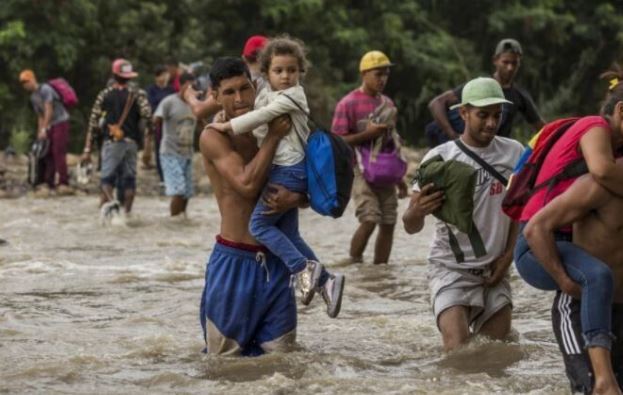
(Venezuelan refugees crossing the river to Colombia, source: UNHCR)
There are people who are called “the saddest traveler in the world.”
It's a refugee. These are people who have fled their homeland and their homeland to escape war, famine, and persecution.
In June, UNHCR announced that the number of refugees worldwide had exceeded 100 million as of May 2022. This number is comparable to the population of Egypt, the 14th most populous country in the world. It would be enough people to make up a country; but they have lost their country and are wandering around the world.
For clarity, in this article we speak of 'refugees' who left their homeland and moved to another country, 'internally displaced people' who left their homeland and moved within their own country, and 'asylum-seekers' who left their homeland and requested protection in another country, namely 'forced migrants' or simply 'refugees'.
UNHCR Definition of ‘Refugee’
- Refugee: A person who is at risk of persecution due to race, religion, nationality, membership in a particular social group, or political opinion, and is in need of international protection because he cannot or cannot return to the protection of his country of origin.
- Internally Displaced Person: A person who has had no choice but to escape from their home or usual place of residence but has not crossed an internationally recognized border.
- Asylum-seeker: An individual seeking international protection, who is waiting for the result of a refugee claim
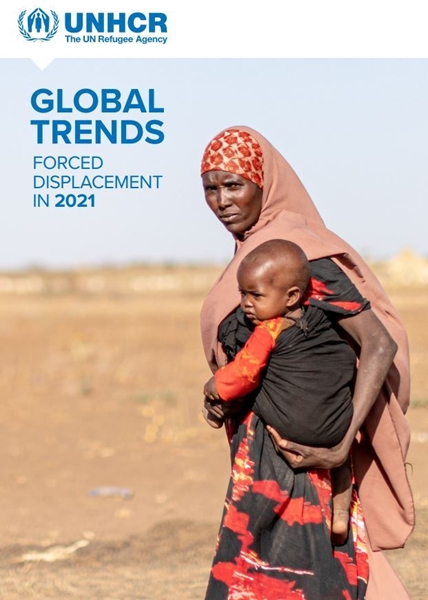
(Go to UNHCR report)
UNHCR has published the ‘2021 Global Trend Report’, which compiled the status of refugees as of the end of 2021. The number of refugees counted in the report at the end of 2021 was 89.3 million, an increase of about 6.9 million, or 8%, from the 82.4 million counted at the end of 2020. This is also twice as large as it was 10 years ago. What caused the sudden surge in refugees?
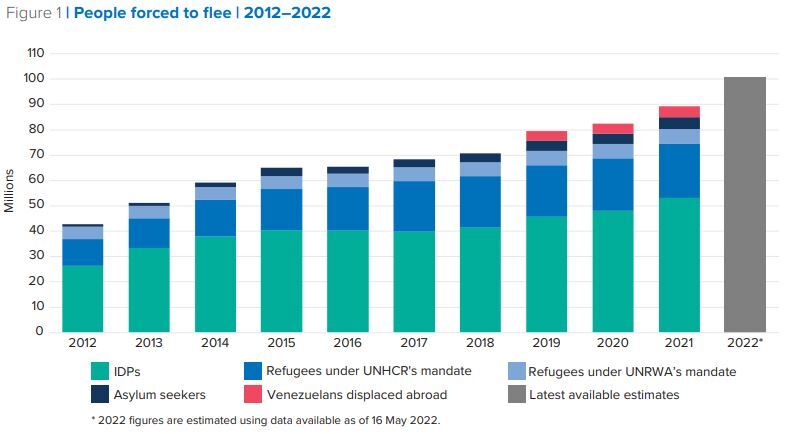
Annual Refugee Growth
However, within just five months after the report was compiled and published, the number surged by more than ten million refugees. What could have caused such a sudden surge in refugees?
UNHCR cited Russia's attack on Ukraine and civil wars in Africa and Afghanistan as chief reasons. In fact, more than 7 million refugees have fled Ukraine since the outbreak of the war in February this year, the largest number in Europe since World War II.
―
Refugee Originating Nations, Refugee Receiving Nations
―
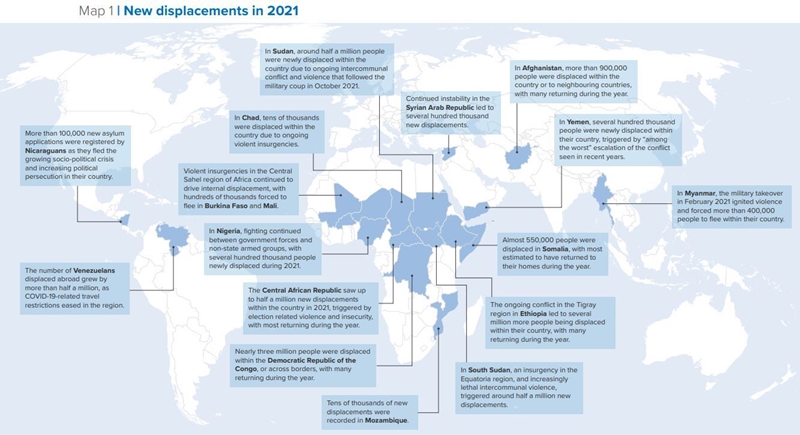
(Map of countries with internally displaced refugees)
According to the report, as of the end of 2021, the number of displaced people who fled to other areas within their home country was 53.2 million, amounting to 59.6% of all refugees.
The number of refugees who have left their country to receive protection from other nations is 27.1 million, or 30.3% of all forced migrants (refugees).
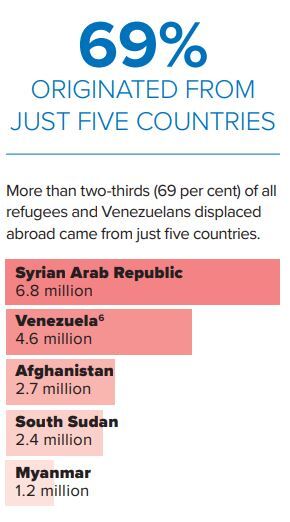
The refugees come from Syria (6.85 million), Venezuela (4.6 million), Afghanistan (2.71 million), South Sudan (2.36 million) and Myanmar (1.17 million) in that order.
The above five countries account for 69% of all migrant refugees abroad.
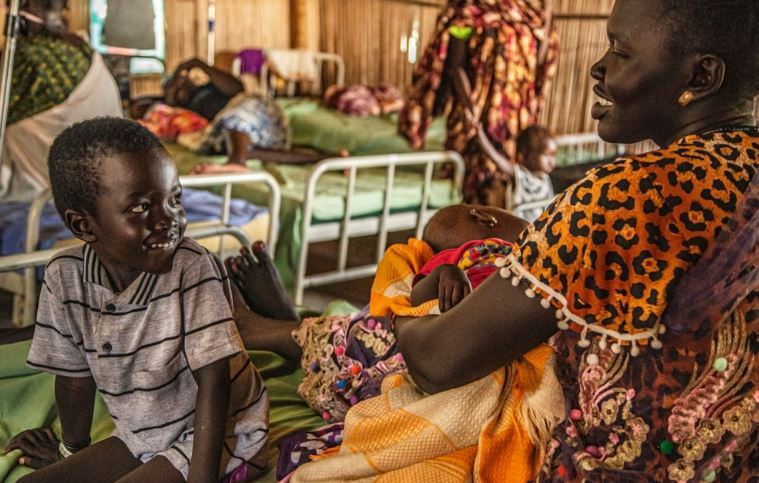
(Mother and son leaving South Sudan and staying in a refugee camp in Sudan. Source: Doctors Without Borders)
What made them leave their homeland?
△ Syrian civil war and regime tyranny, △ Venezuela's economic hardship, △ Afghanistan from harsh Taliban rule, △ South Sudan from civil war, △ Millions of people have fled Myanmar to escape the oppression of the regime.
They left their homeland to live a better life, but what they face is harsher circumstances. This is because a difficult process awaits them to obtain refugee status even when they cross the border with difficulty.
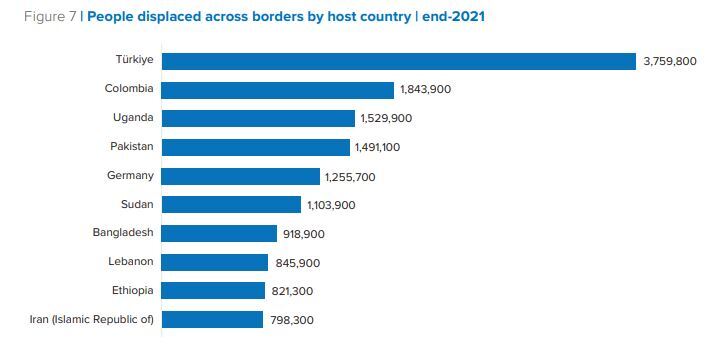
Let's look at the state of the countries that have accepted refugees. The country with the highest number of refugees in the world is Turkey (3.76 million people). Turkey, which hosts a large number of Syrian refugees, has maintained its status as the largest host country for the eighth year in a row.
After Turkey, Colombia (1.84 million people), Uganda (153 million people), Pakistan (1.49 million people), Germany (1.25 million people), Sudan (1.1 million people) and Bangladesh (920,000 people) received the most refugees in that order.
However, these statistics cover up till the end of 2021; the ranking is certain to change when we include the current exodus of Ukrainian refugees.
—
Child refugees, 41%
—
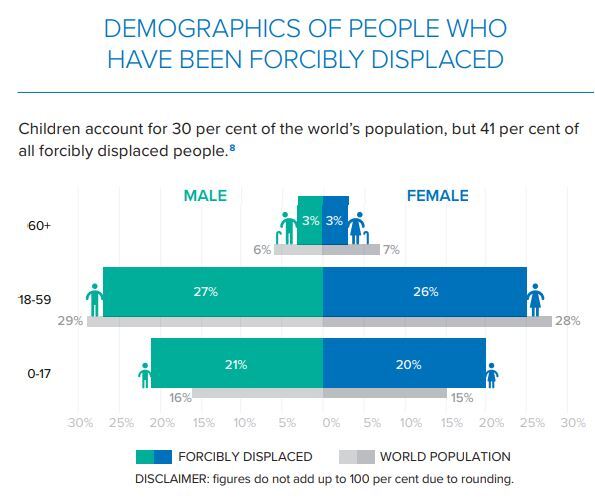
Children account for 41% of all refugees, but 30% of the world population at large.
Child refugees are the weakest of the weak, and they desperately need safety and protection. Child refugees arriving in border areas are exposed to crimes such as separation from family, violence, sexual exploitation and human trafficking.
World Vision addressed the issue of child refugees in the report "Children in a Food and Protection Crisis: Marginalized Forced Migrants" published in July of this year.
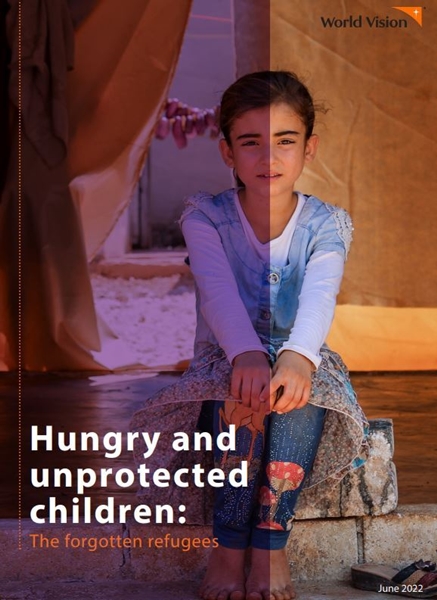
(Go to World Vision Report)
In a survey of 2,522 refugees from 467 households in 11 regions, ▪Food/nutrition shortages ▪School dropout ▪Violence against children were identified as the most worrisome concerns for child refugees.

It also revealed that the income of refugees is steadily decreasing, and violence against children is increasing due to increased stress at home. In particular, in the case of the Democratic Republic of Congo, concerns about early marriage have increased sevenfold over last year. They also pointed out that the lack of services in the field of child protection directly impacts children's lives and well-being.
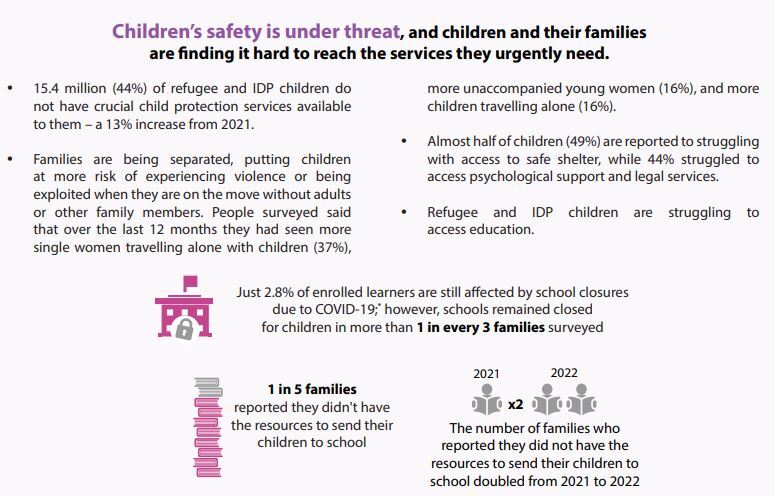
(Children at risk and families with limited access to emergency services)
—
Welcome Refugees vs. Uninvited Refugees
—
Amidst all this, outcries are sounding that refugees are being discriminated against based on their region of origin and race.
This claim has risen since the outbreak of the Russia-Ukraine War. In the past, several European countries were reluctant to accept Syrian refugees from the Middle East and even built walls and fences to stop them. But now, these same European countries are actively accepting Ukrainian refugees.
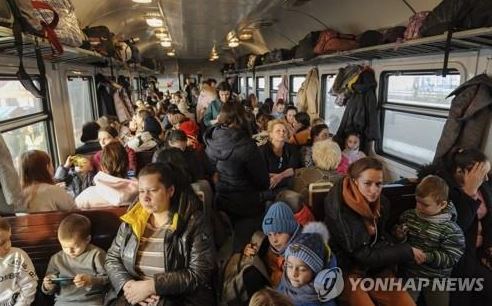
(Ukrainian refugees heading to Poland. Source: Yonhap News)
According to a Reuters report, over the past decade, Europe has accepted only 1 million Syrian refugees. Contrasting this with the acceptance of millions of Ukrainian refugees in a very short period of time, this is a huge difference.
According to reports from CNN and The New York Times, Poland provides hotels and public transportation for free for Ukrainian refugees, and some travel agencies have even produced "city tour guides" for refugees. Hungary has also said it will grant refugee status to Ukrainians who enter the country.
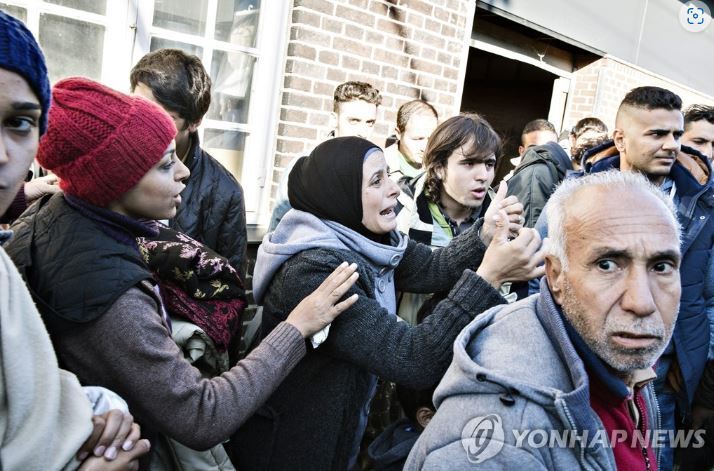
(Syrian refugees argue with police at the Danish border. Source: Yonhap News)
Denmark has announced that, only for Ukrainian refugees, it will not apply the current “regulation for recognition of asylum” in order to help them settle in quickly. Denmark was the first European country to revoke residence permits for 600 Syrian refugees who settled there in 2019.
Austria’s Prime Minister Karl Nehammer, who has firmly blocked Afghan refugees fleeing the Taliban's reassertion of rule, stated he will accept Ukrainian refugees as necessary.
It is pointed out in the World Vision report that while 61.5% of Ukraine refugee requests for emergency assistance has been accepted, this was not the case in other refugee situations. Ukraine refugees and Syrian refugees are both forced to leave their homeland, but the reality of the international community has shown discrimination among refugees.
―
Polarization of Refugee Acceptance
―
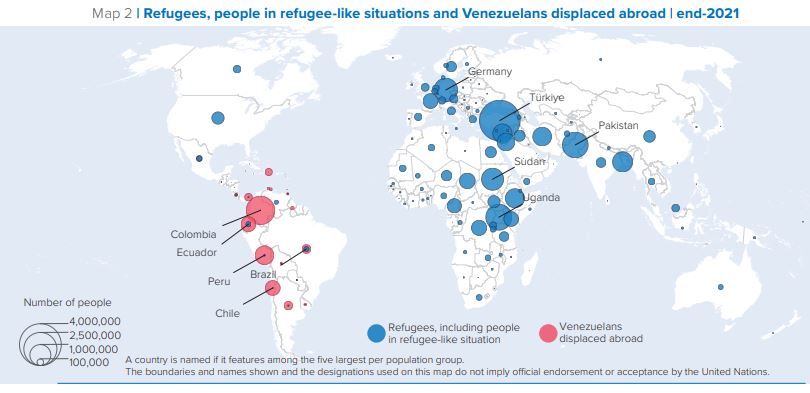
We also see polarization in refugee acceptance rates. Developed countries have low refugee acceptance rates, while low-income countries continue to accept disproportionately large numbers of refugees. 83% remain in low-and middle-income countries, and 27% are protected by underdeveloped countries.
In particular, 22% of refugees are hosted by countries classified as low-income by the World Bank, such as Uganda, Sudan, Ethiopia, Chand, and the Democratic Republic of Congo.
The reason for this is because people taking refugee cross borders and often move into neighboring countries. △ Syrian refugees move into Turkey and Iran, △Afghan refugees move into Pakistan, △South Sudanese refugees move into Sudan and Uganda, △Venezuelan refugees move into Colombia, and △Myanmar refugees move into Bangladesh. The problem is that those neighboring countries have their own struggles.
On the other hand, high-income countries that have most of the world’s wealth, have embraced only 16% of refugees. Therefore, more help is needed from those countries in the global community.
―
Every Life is Precious
―
Every human life should be respected and protected regardless of their religion, race, nationality, and gender. Global awareness and international solidarity are crucial to secure freedom and equality for every life in every part of the world.
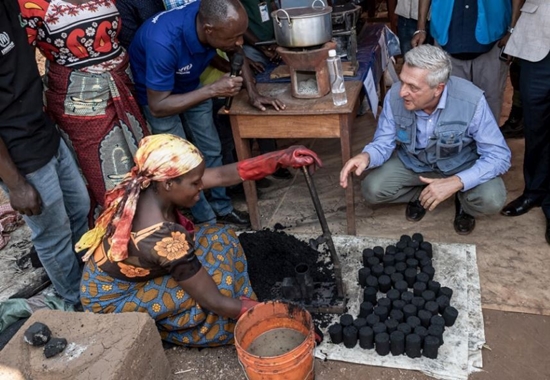
(Filippo Grandi visiting a refugee camp in Tanzania on right, Source: UN Refugee Agency)
Filippo Grandi, the head of the UN Refugee Agency, said, “The number of refugees has continued to rise over the past 10 years. Unless the international community joins forces to resolve disputes and come up with countermeasures, the disastrous trend will continue.”
Dr. Sun Myun Moon, the founder of the Sunhak Peace Prize, said, “Reflecting on whether true peace can be maintained without the happiness and peace of all neighboring countries, we learn that without love for humanity across borders, world peace nor peace in each nation is possible.”
In Chinese characters, the word “peace” means to achieve harmony in an equilibrium. It means that peace is achieved only when everyone on all four sides is joined in harmony and joy.
Somewhere in the world that we are living in, there are 100 million refugees unsettled away from their homes. It’s time to think about how we can live in solidarity.
Written by Sharon Choi
Director of Planning
Sunhak Peace Prize Secretariat

